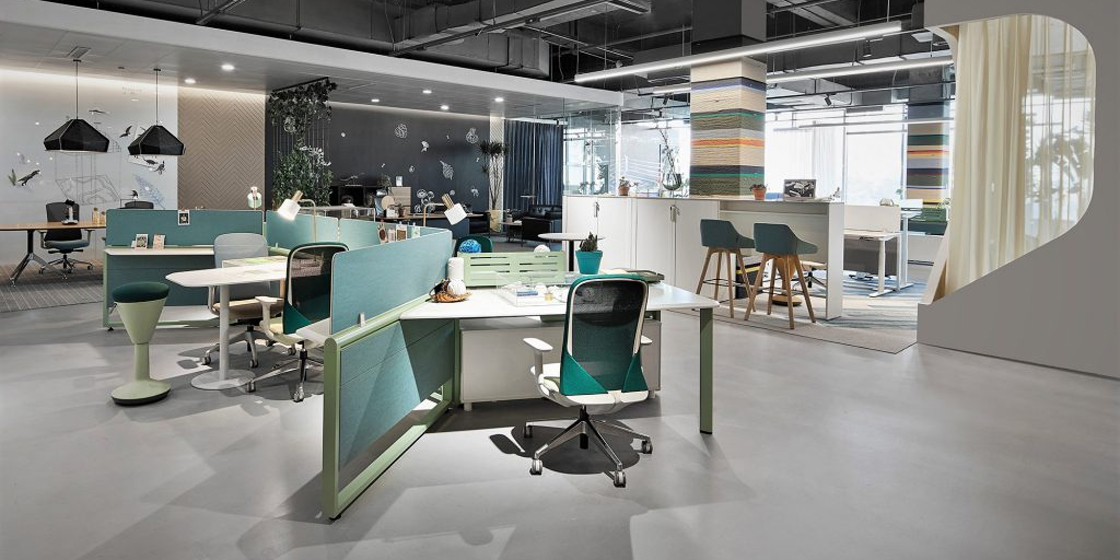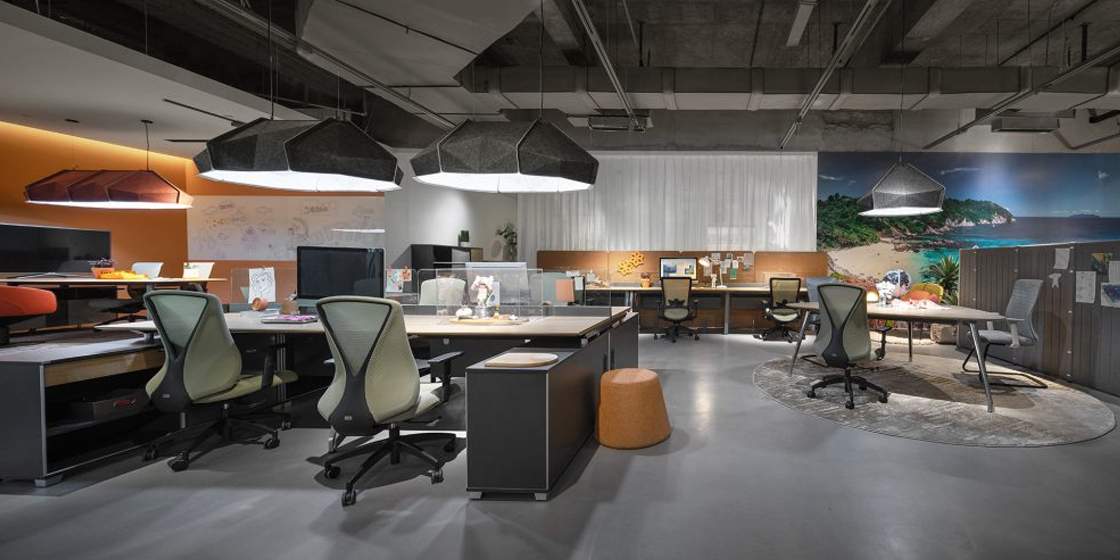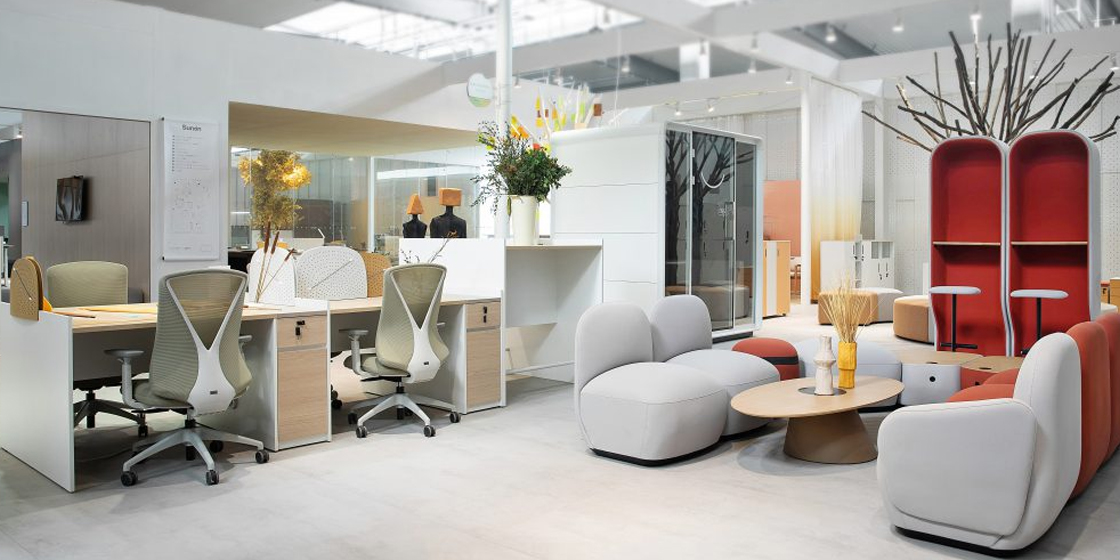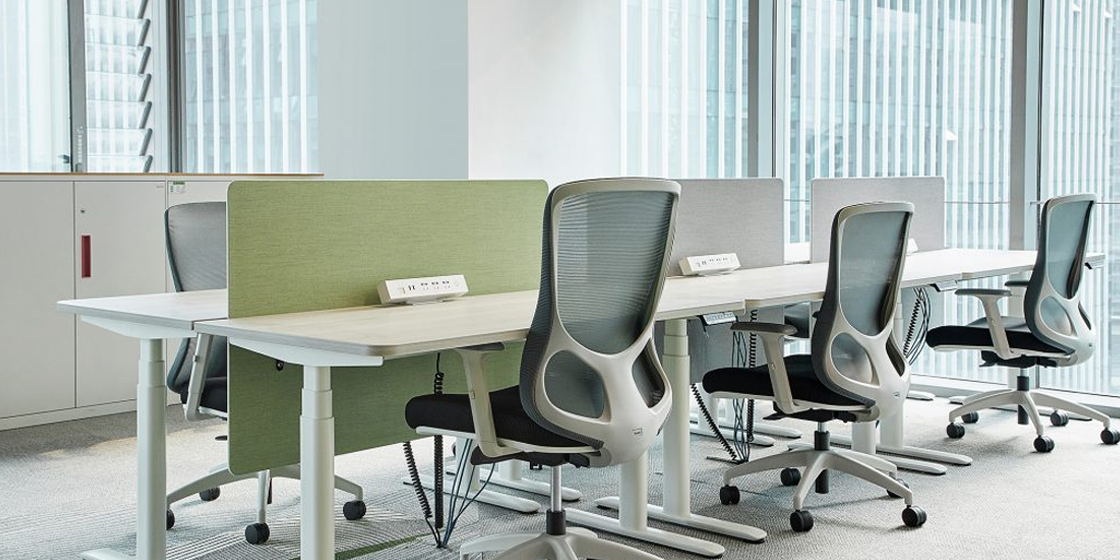
Many parts of the world are slowly reopening and people are returning to their workplaces, ever-changing social distancing measures in place. In the midst of an accelerated trend towards more flexible working, offices are not dying out just yet. It's becoming clear that office spaces offering safety, agility, and value are highly desirable in these uncertain times.
The current discussion about the future of office demand is mainly based on surveys or anecdotal evidence like statements from business leaders or a small sample set of actual lease decisions, and even those decisions may be short-term in nature. Office rents can be pricey, though. Companies will rethink how they manage their office space in terms of functionality and safety – and in terms of saving on capital costs. We will always need an office, but the relationship between workers and the office is going to change following the pandemic.

What do people want?
We need connections, interactions, and people. Employees view the office as a critical place to meaningfully connect with colleagues, which is why many people are wanting to head back to the office. Working with colleagues/clients online is a pain point for many employees working from home/a remote location due to COVID-19. The difficulty people have connected with co-workers while working remotely gets at what people miss from the office: the opportunity for meaningful connections. Many also cited the inability to unplug, loneliness, and distractions as major pitfalls of home working.
The top concern of employees returning to the workplace revolves around losing their newfound sense of flexibility while working remotely and the second concern is cleanliness. So, organizations will need to find ways in which employees can keep some of their newfound flexibility as they head back to a safe and hygienic office. With a rising demand for flexible work benefits, organizations need to consider the potential for reduced office occupancy, which has ramifications for how much office space they need — and what types of workspaces they offer employees.
Colliers surveyed 5,000 clients and found that only "12% want to work for 4+ days from home post-pandemic."
Savills surveyed 65,000 clients and found that "89% of respondents believed that physical office space remains a necessity for companies to operate successfully, but the office is set to change."
JLL surveyed 3,000 clients and found that "58% of office workers missed the office, a sentiment expressed by an even larger percentage of those 35 and under."

Why is office important in a Post-COVID 19 world?
There are many articles declaring that the office is dead and work from home is a permanent solution. But, in reality, work from home comes with its challenges and the office still is integral to our work. In this blog, we discuss the benefits of office working and why returning to our spaces will positively impact everything from productivity to wellness.
Work/life balance
A physical office does a fantastic job of implementing a much-needed barrier between work and home life. Remote working, on the other hand, gives way to an unhealthy and imagined pressure that we ought to be constantly available, which can have profound implications on our productivity – and at its worst, lead to burnout.
Improved productivity and creativity
This increase in productivity can also be attributed to a lack of distractions in the office. Research has also shown that creativity thrives in an office environment thanks to casual collisions, and studies have found that people working together in the same room tend to solve problems more quickly than remote collaborators.
Learn more about creativity and innovation at the workplace
Optimal workspace
The quality of our work setting has a significant effect on our psychological health and its absence can negatively impact productivity. Recreating the office environment at home can be difficult and not everyone can create an optimal workspace at home. Studies show that workers who have recently returned to offices have noticed a marked improvement in productivity.

Social needs and bonding
Offices fulfill our need to celebrate the human elements of business: empathy, humor, creativity, and innovation. The interactions employees enjoy in a shared space, can go a long way in helping us feel connected. These social touchpoints can make us feel having a meaningful place in your workplace and make stronger bonds among team members. It's almost impossible to create company culture when everyone is virtual – technology can't replace human contact.
Learn more about Shared Spaces in Office.
Performance and recognition
Remote working creates myriad issues, among them the inability to monitor output, support lower-level employees and new joiners, or celebrate company wins. People will want to return to the office as home-workers "tend to get overlooked" for promotion. When it comes to celebrating team achievements, nothing beats joining colleagues and celebrating together.
Wellness
Work from home can have adverse effects physically and mentally. With lockdown lasting months, poor posture and bad diets are becoming ingrained. From a mental health perspective, burnout and isolation are causes for concern. Remote employees often feel compelled to work longer hours than their in-office counterparts to prove productivity, with the pressure to appear "busy" causing increased anxiety. An office provides a holistic environment that can promote healthier work life. Sit-stand desks, biophilia, gym, ergonomic furniture, etc. can help us in our wellbeing.
Learn more about Biophilic office design

The Takeaway
An office environment is sure to offer inimitable benefits with regard to productivity, creativity, motivation, corporate culture, and social interaction that will remain relevant and important for employers and employees in the long term. The Office is not dead and never will be. It will remain a necessary facet to businesses of all shapes and sizes and we should see a strong re-engagement in the office space in the near future.